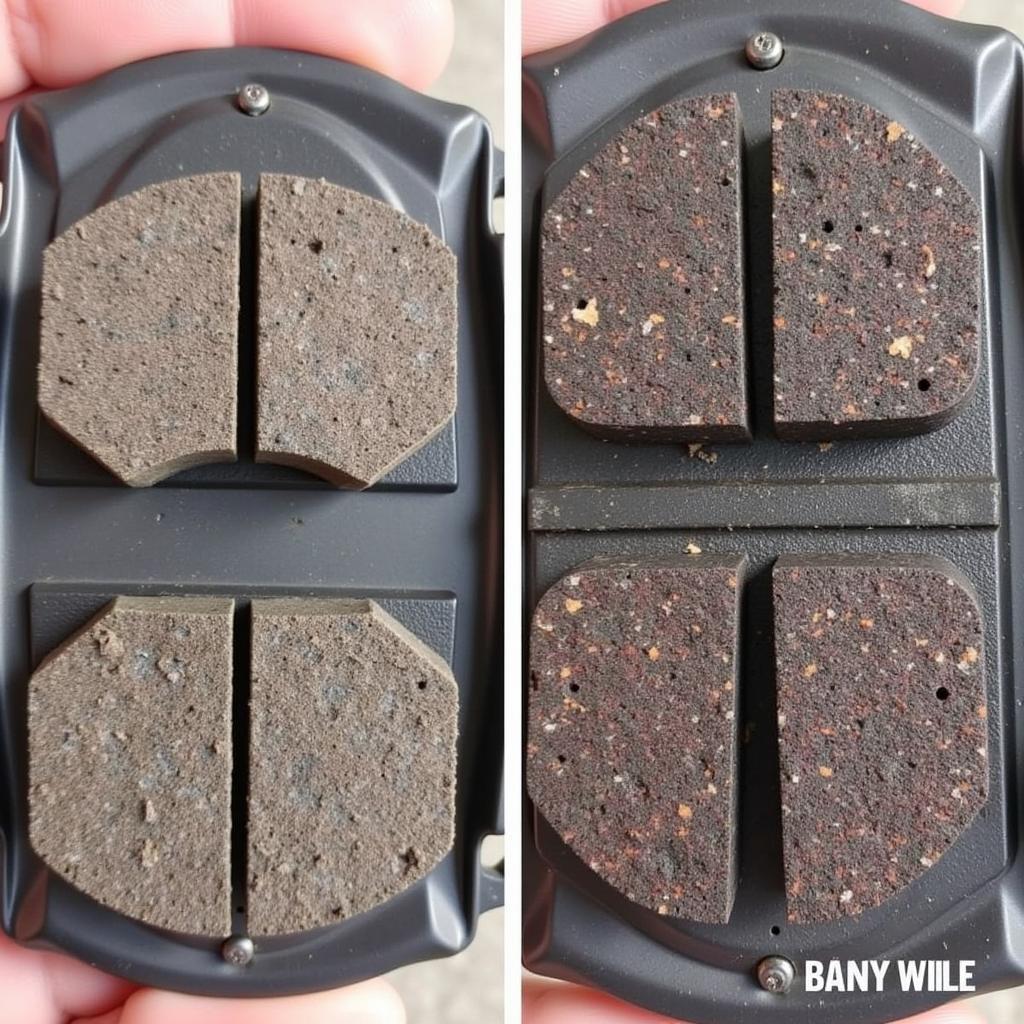The brake warning light on your Toyota 4Runner is a crucial safety feature, designed to illuminate if there’s an issue with your braking system. While it might simply indicate a low brake fluid level, it could also signal a more serious problem. Ignoring this warning light could compromise your ability to brake safely, potentially leading to dangerous situations. This comprehensive guide dives deep into the common causes of a Toyota 4Runner brake warning light and provides practical steps for troubleshooting and resolving the issue.
Common Causes of a Toyota 4Runner Brake Warning Light
Several factors can trigger the brake warning light in your Toyota 4Runner. Here’s a breakdown of the most frequent culprits:
-
Low Brake Fluid Level: This is the most common reason for the warning light to appear. Brake fluid, responsible for transmitting force from the brake pedal to the wheels, can decrease over time due to leaks or normal wear and tear.
-
Worn Brake Pads: Brake pads are designed to wear down with use. Once they reach a certain thickness, the brake warning light activates, signaling the need for replacement.
-
Faulty Brake Caliper: The brake caliper houses the pistons that push the brake pads against the rotor. A malfunctioning caliper can cause uneven brake pad wear, leading to premature activation of the warning light.
-
ABS Issue: While less common, a problem with your 4Runner’s Anti-lock Braking System (ABS) can also trigger the brake warning light. This often requires specialized diagnostic tools to pinpoint the exact fault.
-
Parking Brake Engaged: Sometimes the simplest explanation is the right one. If you’ve left your parking brake partially engaged, the warning light may illuminate.
Troubleshooting the Brake Warning Light
Before rushing to a mechanic, there are some checks you can perform yourself:
-
Check the Parking Brake: Ensure the parking brake is fully disengaged. If it’s even slightly engaged, it can trigger the warning light.
-
Inspect Brake Fluid Level: Park your 4Runner on a level surface and locate the brake fluid reservoir. It’s usually a translucent container with “DOT 3” or “DOT 4” marked on the cap. Check the fluid level – if it’s below the “MIN” line, it needs topping up.
-
Visually Examine Brake Pads: If you’re comfortable with basic car maintenance, you can visually inspect your brake pads. Look through the spaces between the wheel spokes to see the brake pad’s outer edge. If the pad material is thin or worn down to the metal backing plate, it needs replacement.
 Worn Brake Pads Toyota 4Runner
Worn Brake Pads Toyota 4Runner
When to Seek Professional Help
If the brake warning light remains illuminated after performing the initial checks, it’s crucial to seek professional help. Driving with a potential brake problem can be dangerous.
“Remember, the brake system is critical for your safety and the safety of others on the road,” advises veteran mechanic John Miller. “If you’re unsure about any aspect of your vehicle’s brakes, it’s always best to err on the side of caution and consult a qualified mechanic.”
Preventing Future Brake Issues
Proactive maintenance can help prevent many brake problems:
-
Regular Brake Inspections: Schedule brake inspections with every oil change or as recommended by your 4Runner’s owner’s manual.
-
Timely Brake Fluid Flush: Brake fluid should be flushed and replaced according to the manufacturer’s maintenance schedule. Over time, brake fluid absorbs moisture, reducing its effectiveness.
-
Avoid Riding the Brakes: Continuously applying pressure on the brake pedal can lead to excessive wear and heat buildup.
 Toyota 4Runner Brake System Inspection
Toyota 4Runner Brake System Inspection
Conclusion
The brake warning light in your Toyota 4Runner is a serious alert that shouldn’t be ignored. While a simple issue like low brake fluid might be an easy fix, a persistent warning light often indicates a more complex problem requiring professional attention. Remember, timely maintenance and addressing brake issues promptly are crucial for ensuring your safety and the longevity of your Toyota 4Runner.

